April 2010
The New Frontier
Southport, NC
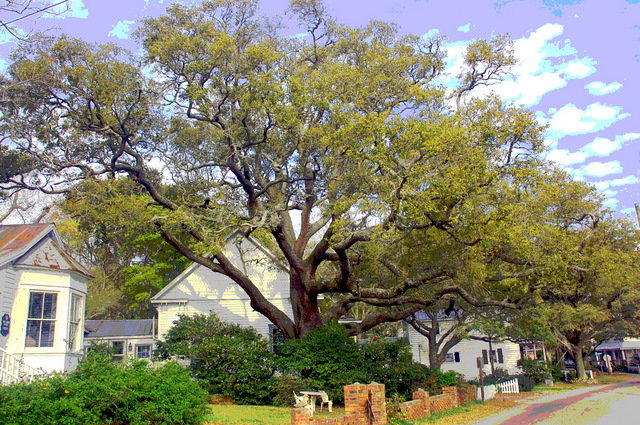
Well, we have all the pictures and hopefully the memories won’t fade too fast but how do we make sense of all this? We started out wanting to learn more about everything and so it happened. Here are some of the curricula we studied during the last eight years. Most of it is obvious and unrevealing but our having been there greatly enhanced the learning experience and made an indelible impression upon our lives.
Sailing
We departed without a great deal of sailing experience or practical seamanship. In fact we had only been aboard a sailboat for some seventeen days before we purchased our own boat and were almost immediately making offshore passages. We are not recommending this approach to cruising but rather pointing out that you don’t need a great deal of experience to get started. During the first few years we could make the boat go where we wanted it to and knew how to utilize most of our ground tackle but with each passage we learned more and more about boat handling, sail trim, spinnaker use, mechanical operations, weather, tides, currents, provisioning, passage making, and as our self taught skills developed so did our confidence. Not only did our anxiety go down but so did our work load as we became more efficient and had to deal with fewer self induced problems. Today we are still learning and every time we repair something or release the lines we become more competent and self reliant.
Geography
Forty-seven countries have been added to our passports and our knowledge of geography goes beyond the topography and the name of the capital city. Our travels have given us a foundation of the flora and fauna, the wildlife, the surrounding waters, the natural boundaries, the ethnicity and tribal allegiances, the natural resources, and the political structure and economic development. 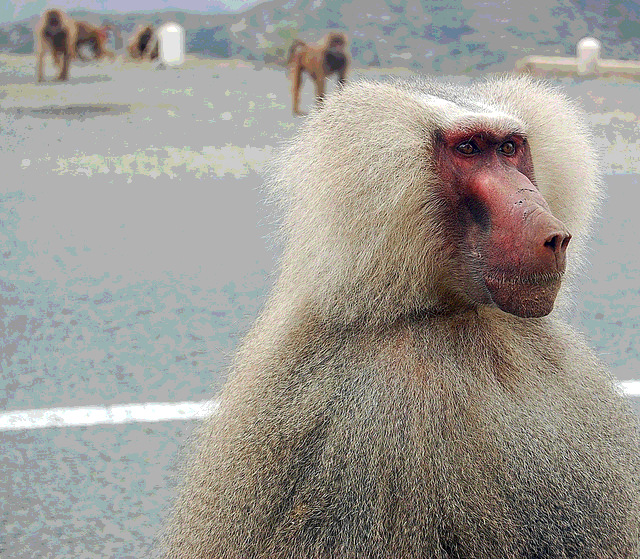
But of course it is in meeting the people in the lands we visited that really made the difference.
List the top ten cities in the world by whatever criteria you choose. Now look at an atlas and see how many fall between the Tropic of Cancer and the Tropic of Capricorn. Our adventure on Shiraz took place in the tropics with the exception of our passage through the Mediterranean so our experience was limited and probably didn’t include any of the ten cities you mentioned. After spending time in tropical environments you understand that they exist at the distinct disadvantage of a limited fresh water supply and it may be this difference that separates the ”have and have not's“ of this world. You may look at a tropical island and its lush green fauna and believe that there is sufficient rainfall but rainfall in the tropics is seasonal there are no lakes and rivers and streams that provide year round fresh water. Plentiful fresh water typically results in a sustainable agricultural base which will lead to economic development, which then ramps up into all sorts of cultural, educational and social development. There are exceptions such as the rain forest of South America which gets plenty of rain yet is undeveloped.
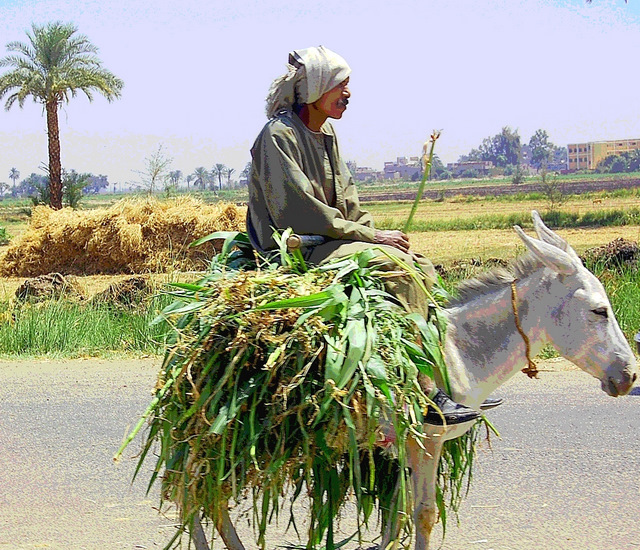
You can’t tell a farmer in Egypt that his life would improve if only he would work harder or use more advanced agricultural techniques. And it’s not only the weather working against him in planting crops or in raising live stock which is more prone to succumb to disease in tropical climates, but the whole structure impedes his success. Economic aspirations in arid countries are not about acquiring the latest Iphone but rather personal economic security. Living at the edge of poverty lead many to turn from the quest for material goods to religious fulfillment.
Besides visiting foreign countries we learned a great deal about the world from the international community of cruisers. We made friends with sailors from England, Germany, Norway, Denmark, France, Turkey, Australia, New Zealand, Canada and many many other nations and this helped us expand our view of the world. Within this group you make friends and find the camaraderie that makes you feel good about what you’re doing.
In the end, the opportunity to meet so many people from so many different countries was the richest reward of our adventure. We found wherever we were in the world, people were more than just helpful, they went out of their way to make our acquaintance and help us enjoy our visit.
Literature
Think of eight years without TV, newspapers, magazines and very little internet and radio. Well what you do is read. A book exchange can be found at almost every marina or cruiser bar and although the selections may weigh heavily toward the summer beach book if you keep looking you can find current best sellers, classics, many travel books, a great deal of historical fiction, and even science books. We dig in because this is as good as it is going to get.
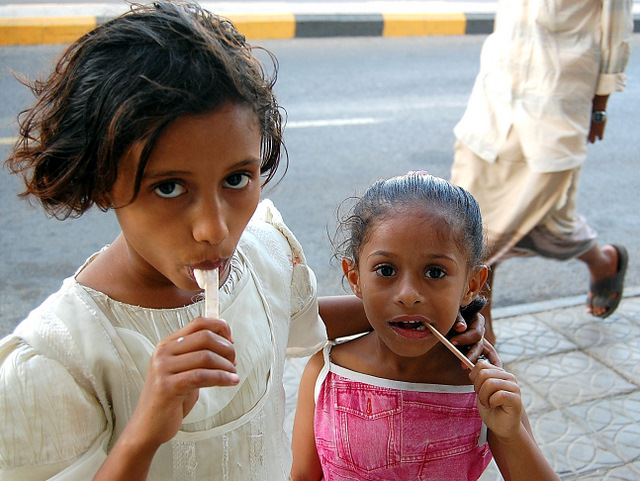
True, we were never tested on our understanding of the book or our retention but between the two of us we made critical evaluation and then grabbed the next book day after day after day. We weren’t erudite about our reading since we read a great many bad titles. But even in a bad book you can usually learn something.
We also found that in most of the world you can purchase pirated movies for two dollars or less. These tend to be action movies where the nuances of translation don’t count for much but you can also find some excellent releases.
History
With every country you visit you want to learn something about its history. This process usually starts with a quick encyclopedic search but always ends up visiting historic sites and reading of biographies and historical fiction. We went out of our way to understand how cultures first encountered each other and then began overlapped by trade or conquest. The adventure brought back many history lessons taught in school or from the Bible and as you start to roam you soon start to quilt small bits of information and stories into a much better understanding of history.
Christopher Columbus’s exploration of the New World led to exploitation, slavery, privacy, and inevitability to revolution. Traveling in South and Central America provided us with a view of how the search for unearned wealth led to the clash of civilization as depicted by the horrific conquering of the Incas by Spanish Conquistador Francisco Pizarro. After riches were discovered and fortifications such as Cartagena were built, piracy followed the treasure and finally when the ill gotten riches ran out the area turned to slavery as a means of extracting more from newly discovered lands.
In crossing the South Pacific we read about the voyages of Captain Cook and visited some of the same ports Cook had discovered. Again distinctly different cultures met and occassionally fell into conflict. But even before Cook, the Chinese explored much of the Pacific according to Gavin Menzies, author of 1421. When we were of school age most US schools ignored the study of eastern civilization so our circumnavigation gave us a whole new perspective of history of Asia and Micro Asia.
In Sri Lanka we saw the few 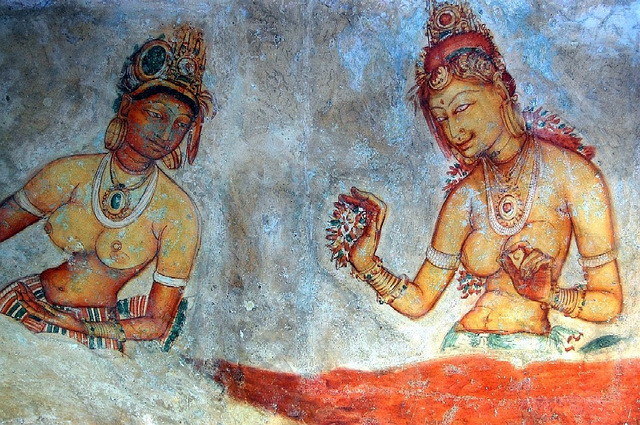 remaining Hindu frescos at Sigiriya. Most of the original were destroyed after the island converted to Buddhism sometime after 600 BC. The Buddhist monks felt they could not properly meditate under the gaze of the scantily clad women depicted in the frescos. From here it was on to Oman and our first encounter with the world of Islam. remaining Hindu frescos at Sigiriya. Most of the original were destroyed after the island converted to Buddhism sometime after 600 BC. The Buddhist monks felt they could not properly meditate under the gaze of the scantily clad women depicted in the frescos. From here it was on to Oman and our first encounter with the world of Islam.
The time line of history is inextricably entwined in religion and as we traveled the Red Sea we were able to enjoy visiting one of the earliest beginnings of civilization. The Egyptians were embalming people in 4000 BC preparing them for an afterlife. We took the opportunity to visit the Nile and see its wonders and understood how the Egyptians could worship the sun and the river and the wildlife.
We found Mount Nebo in Jordan, where around 1250 BC Moses saw the promise land. A land which according to the Bible he was never allowed to enter.
Traveling through the Mediterranean provided us with the opportunity to visit a great many churches, cathedrals and basilicas learning a great deal about Catholicism. In Istanbul, once the center of the Byzantine Empire and Christendom, we discovered the castles and fortresses of the Ottoman Empire established as the teaching of Muhammad swept the Middle East after 500 AD. 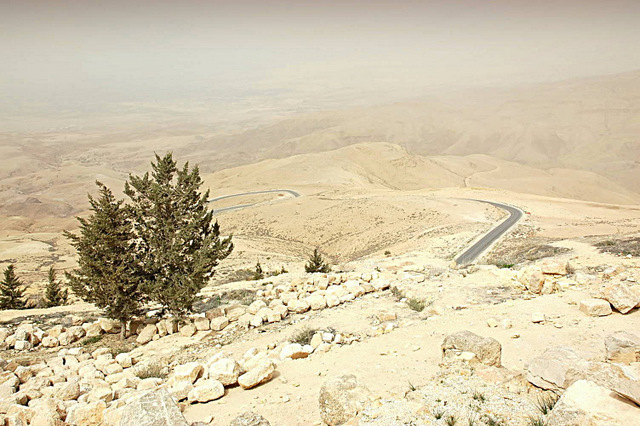
Throughout our travels we saw fortifications that were once occupied by the Ionians, then Greeks, then Romans, then Byzantines then the Ottomans as civilization built upon civilization. We found roads built by the troops of Alexander the Great, cities such as Ephesus built by the Romans, early trade routes where cities like Petra sprung up and different cultures traded goods and ideas. And of course there was always our friends the Phoenicians. When you have been brought up in the US all of this makes a great impression upon you and it takes a great deal of time to absorb this much history.
Oceanography
Well you just can’t live on the oceans of the world for eight years and not learn something about the oceans and the creatures in them.

On the ocean you can see weather develop as you just can’t do on land. Cold Fronts, thunderstorms, squalls, heat lighting; all of it headed your way in 360 degree panoramic vision. Couple this with feeling the tides and currents under your boat and you begin to understand the formidable forces of nature. Marine life is also a continuous source of wonderment. If you sit at an anchorage and see a sting ray with a four foot spread jump three feet out of the water, you know there is so much to discover under the water.
Unfortunately you can also see plastic floating almost everywhere making you wonder what is the best method for small economically disadvantaged islands to dispose of rubbish.
Diesel Engine Repair
And other mechanical tasks.
If cruising is anything it is about doing maintenance and boat repair in exotic places. I can well remember pulling my injectors in Turkey and taking them to a place that spoke no English, or backpacking my 18 pound refrigeration motor up and down the hills in Tonga until I could find an electrical motor rebuilder that could replace the worn brushes. Then there is the simple task of dealing with another different electrical plug or butane connection, changing pumps, rewiring antennas or what ever it took to keep everything functional.
Repairing anything is about trouble shooting and as the years progressed and the familiarity of the equipment became intimate knowledge, the time to troubleshoot went from days to literally minutes.
Travel
But this learning did not come without some trepidation. I read a quote by Albert Camus,
”What gives value to travel is fear. It is the fact that , at a certain moment, when we are so far from our own country…..we are seized by a vague fear, and the instinctive desire to go back to the protection of old habits. This is the most obvious benefit of travel."
You just don’t step off the boat in Al Mukalla, Yemen to find some local currency and an internet café without some apprehension. When you head out across the Pacific it is a long way from anywhere and when you arrive there is no one there to greet you. You go ashore and find your way around. Tourists have succinct plans that remove them from the local populace. 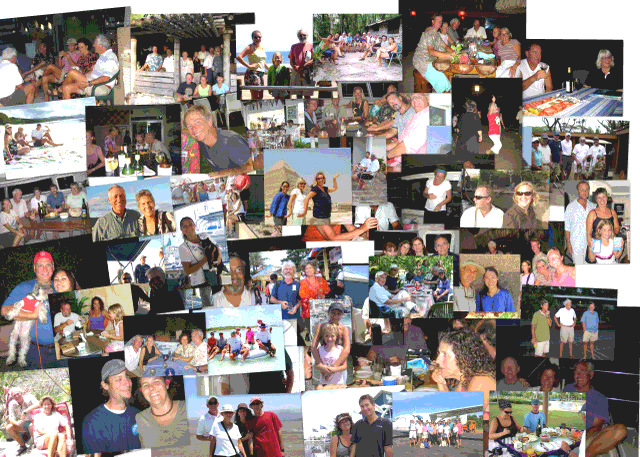
But when you go ashore to try and find customs and immigration, a hardware store or bakery you’re no longer a tourist.
It all started as an adventure to explore the blue waters, beaches and a different lifestyle and turned into an opportunity to visit exotic locations we knew very little about. But in the end it was the people we met that made the difference in our understanding of ourselves and more of the world. We did miss out on a great deal and it had nothing to do with trading a house for a boat, it had to do with family. It was a great deal of time that we can’t recapture and of course the biggest trade off we faced.
Tune in next month for an update and some more thoughts about our travels...
BACK NEXT
|